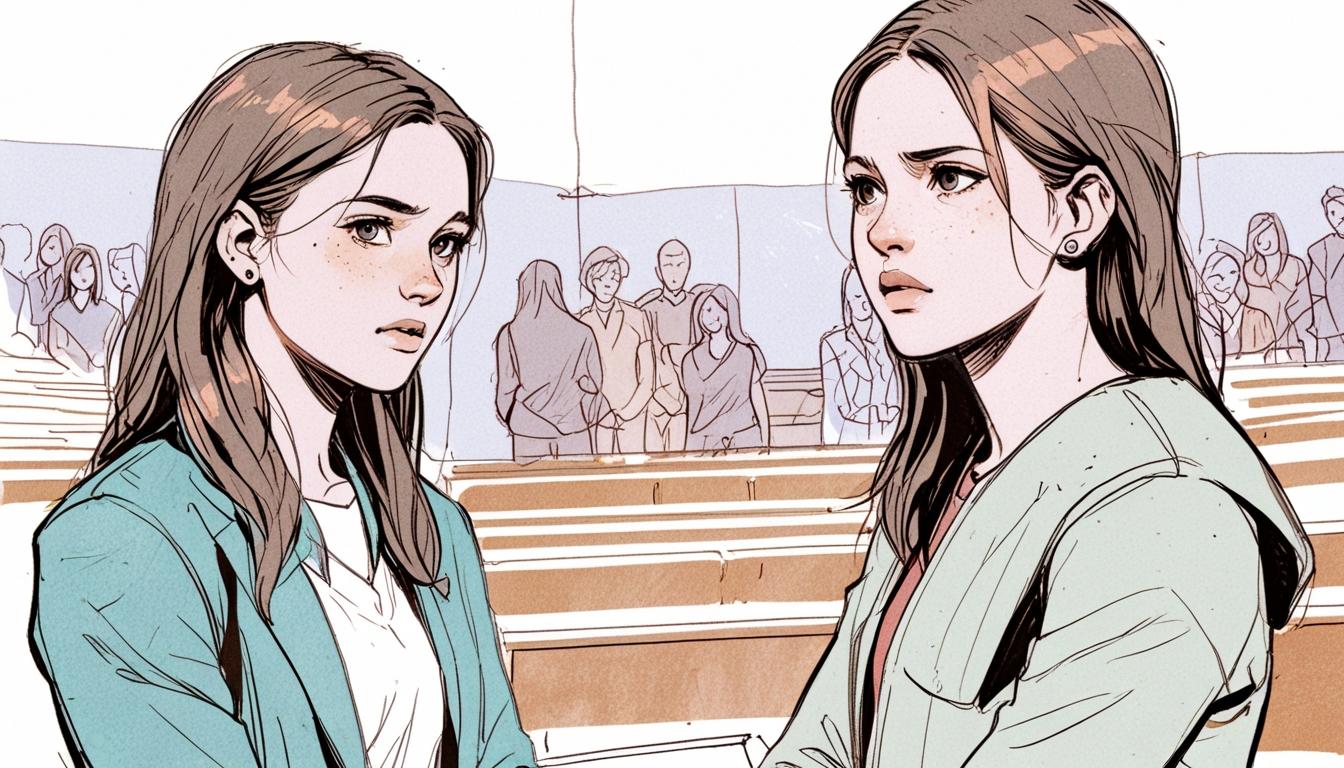In a revealing new documentary, rape survivor Ellie Wilson shares the harrowing details of her experience within the criminal justice system, a journey marked by trauma and resilience. The documentary, titled Convicting My Ex, follows Wilson over nine months, documenting her battle for justice after her ex-boyfriend, Daniel McFarlane, was convicted in 2022 of two rapes that occurred during their relationship. Although she secured a conviction and a five-year prison sentence for McFarlane, the trial exposed the significant psychological toll on Wilson, as she was subjected to intense scrutiny and appropriation of her narrative within the courtroom.
The experience in court was described by Wilson as ‘bruising,’ particularly due to the conduct of McFarlane’s defence lawyer, Lorenzo Alonzi, whose tactics included questioning her character in ways that left her feeling ‘humiliated.’ The Faculty of Advocates later found Alonzi guilty of unsatisfactory professional conduct over six of the eleven issues Wilson raised in her complaint against him. This outcome signifies a critical step toward holding legal representatives accountable for their behaviour and ensuring that victims are not further traumatized during court proceedings.
Despite the recorded confession from McFarlane, which should have served as compelling evidence, the trial was arduous, with the jury's verdict not unanimous—a reflection of the challenges survivors often face even when presented with substantial proof. Speaking about the trial, Wilson expressed that the process was not just about seeking justice for herself, but also about addressing the systemic failures within the legal framework that often places undue burdens on victims. “I want to use my voice for change,” she stated, highlighting her motivation to advocate for greater support mechanisms in the justice system.
Wilson's ordeal did not end with the conviction. She has faced ongoing emotional distress, intensified by revelations that McFarlane was considered for parole—a decision that propelled her to action as she campaigned publicly for improvements in how victims are treated. The fear of McFarlane's release deeply affected her mental well-being, prompting sleepless nights and feelings of exile from a sense of normalcy.
In her documentary, Wilson collaborates with fellow survivors to shed light on the complexities of domestic abuse and sexual violence, challenging the narrow stereotypes that often define who a ‘victim’ is. “This documentary exposes the complexity of domestic abuse and sexual violence in young relationships,” she explained, aiming to reshape public perceptions surrounding these issues. The emphasis on nuanced narratives is critical, particularly in light of statistics revealing that many victims remain silent due to fear of disbelief or further victimization.
Wilson's advocacy extends beyond personal testimonies; it encompasses systematic changes, particularly in educational institutions. She has called for universities to reassess their protocols regarding alleged sex offenders on campus, especially after McFarlane was admitted to Edinburgh University despite his conviction. This situation underscores the urgent need for academic institutions to prioritise student safety and transparently handle such cases to ensure that survivors feel protected.
Moreover, the issue of victim participation in parole hearings has come to the forefront following Wilson's experiences. Reports indicate that victims have been barred from attending these hearings under various pretenses, ostensibly to prevent distress to the perpetrator. Such policies highlight an ongoing need for reform within the legal structure to ensure that the rights and mental health of victims are prioritised over the perceived interests of offenders.
As Wilson continues to share her story, she becomes a beacon of hope for others who have endured similar struggles. Her journey illustrates not only the resilience of individuals confronting trauma but also the critical need for ongoing dialogue surrounding victims' rights in the criminal justice system. With her documentary, Wilson hopes to inspire systemic changes that not only support victims but also challenge ingrained societal attitudes toward sexual violence.
Convicting My Ex is set to air on BBC Three, offering viewers an unfiltered glimpse into the complexity of Wilson's experience and the broader implications for victims across the country.
Reference Map
- Paragraphs 1, 2, 3, 4, 5, 6
- Paragraphs 1, 2, 5
- Paragraphs 1, 2, 3
- Paragraphs 4, 5
- Paragraphs 2, 3
- Paragraph 5
- Paragraphs 2, 3
Source: Noah Wire Services
